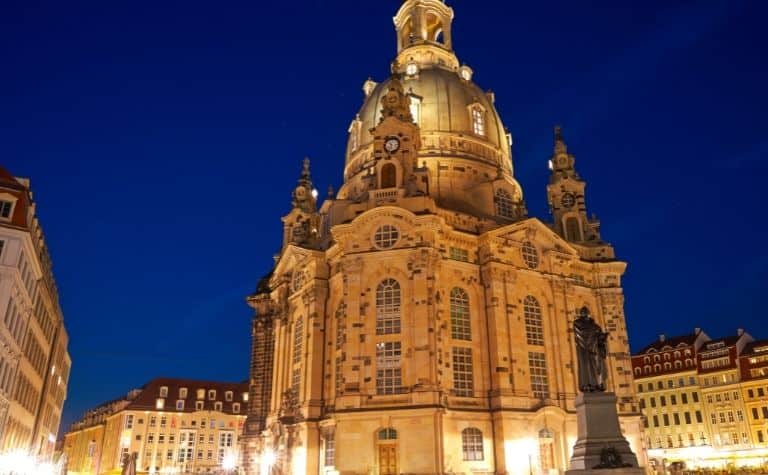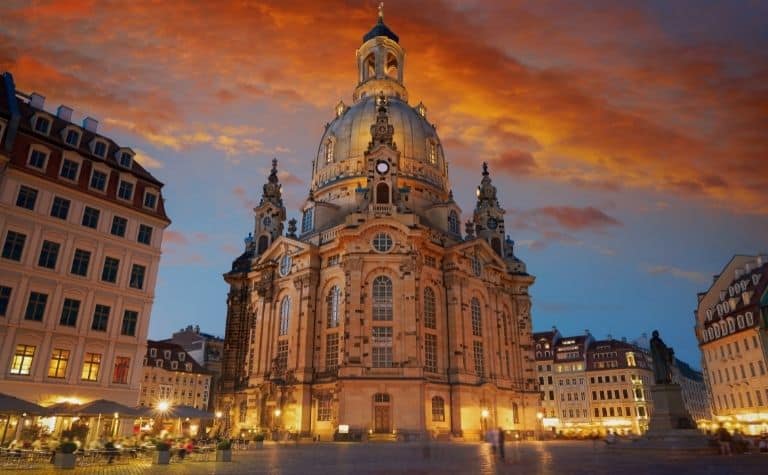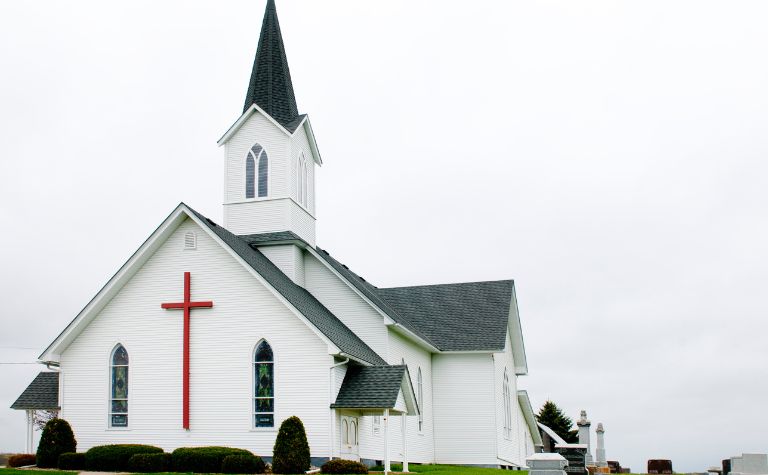Martin Luther (1483-1546) sparked the Protestant Reformation in opposition to the Roman Catholic Church in 16th-century Germany. Luther’s allegations of false teaching and corrupt practices struck a chord with many Christians in Germany, elsewhere in Europe, and eventually in America and around the world.
Protestants left the Roman Catholic Church because it was not upholding the Bible’s teaching that sinners are saved by God’s grace alone, through the work of Jesus Christ alone, which people appropriate through faith alone. This belief stems from their conviction that the Bible alone is authoritative.
What are the so-called “five solas,” and why are they important to Protestantism? What does “the priesthood of all believers” mean? What are Protestantism’s convictions about work and vocation, and how are they different from common medieval distinctions about how people make a living? Keep reading to learn the answers to these questions and more.

The Five Solas of the Protestant Reformation
Luther did not intend to start a new branch of Christianity. He desired to see the Catholic church reform and abandon the unbiblical doctrines and practices that it had embraced. (Also, see Protestant vs. Eastern Orthodox: What’s the Difference?)
The “five solas” articulate the core principles of Protestant Christianity and simultaneously reflect its concerns with the Roman Catholic Church. [1] The word sola is Latin for “only.” The five solas are also known by their Latin names, provided in italics below.
Glory to God alone | Soli Deo Gloria: Protestants believe that God alone should receive glory for the salvation and sanctification of sinners. It is God’s grace, mercy, and love that led to the incarnation of Christ (cf. Jn. 3:16).
Christ’s love for people led him to the cross to lay down his life for their sins. When the Catholic church teaches it has the power to save and sanctify, it robs God of glory, according to Protestant thinking.
Grace alone | Sola gratia: Salvation, which is a gift of God through the work of Christ, is free. Romans 6:23 reads, “For the wages of sin is death, but the free gift of God is eternal life in Christ Jesus our Lord” (ESV, emphasis added). (Also see Why Don’t Protestants Make the Sign of the Cross?)
Protestantism refutes the idea that salvation is the product of God’s grace plus good works or God’s grace plus adherence to certain requirements of the Roman Catholic Church.
Scripture alone | Sola scriptura: In many ways, this is the foundational principle of all Protestant beliefs because it is the root of all other convictions. According to this way of thinking, Scripture should rule the affairs of the church. Church leadership should submit to the authority of the Bible. (Also see Why Don’t Protestants Believe in Transubstantiation?)
It is wrong for popes, and others in authority to make declarations that they claim are equal in authority with the Bible. Church leaders, and everyone else, are all under the authority of Scripture and should humbly submit to its teachings.
Faith alone | Sola fidei: This principle emphasizes that faith alone saves in contrast to faith plus good works, whether those be giving financially to the church, serving the poor and socially outcast, or caring for the sick and elderly.
To be clear, such good works are holy and please God, according to Protestant thinking. However, good deeds are the result of salvation, not the basis for it.
Christ alone | Sola Christus: This principle emphasizes that Christ alone saves people in contrast to Christ plus Mary and Catholic saints. Protestants honor Mary, the mother of Christ, but do not believe that the Bible teaches that she is a co-mediator or co-redemptrix with Christ. (Also see Why Do Protestants Use Grape Juice At Communion?)
Catholic theology teaches that Mary uniquely participated in God’s plan of redemption, which affords her a special role in the salvation of people.
Furthermore, Protestants do not canonize believers who are no longer living on Earth as “saints.” They believe the New Testament word “saint” refers to any believer, not those the Catholic church has specially recognized (e.g., Acts 9:13).

The Priesthood of All Believers
Protestants believe that the Bible teaches that people do not need human intermediaries to know and approach God. Instead, Christ alone is the only perfect and efficient mediator (cf. 1 Tim. 1:5). Protestants believe that Christ alone is every believer’s priest.
Protestant pastors and ministers do not have the same role as a priest does in the Catholic church. They do not grant forgiveness for sin. They do not have special access to God. [2] (Also see Do Protestant Churches Have Nuns?)

The Sanctity of All Vocations
Protestantism seeks to break down the barrier between secular and sacred callings in life. Luther said, “The work of monk and priest in God’s sight is in no way whatever superior to a farmer laboring in the field, or a woman looking after her home.”
He continued, “The Reformers were seeking to recover the doctrine of work found in Scripture. From the beginning of creation, man’s calling was to work. God put man in the Garden of Eden to maintain it as His representative on earth.”
“In Genesis 1:26–28, God created man after His image to ‘have dominion over the fish of the sea and over the birds of the heavens and over the livestock and over all the earth and over every creeping thing that creeps on the earth.’ God called man to “be fruitful and multiply and fill the earth and subdue it.”
“The creation mandate gives a clear call to participate actively in life, appreciating every aspect of one’s life work, and doing all for the glory of God.” [3]
References:
[1] Source
[2] Source
[3] Source
Related Questions
Protestantism and Eastern Orthodoxy are two of the three historical branches of the Christian faith, along with Roman Catholicism. Though the Orthodox tradition is approximately 500 years older than...
Protestantism and Anglicanism are branches of the Christian faith that have roots in Europe. Protestantism and Anglicanism have similarities and differences with each other as well as other...
